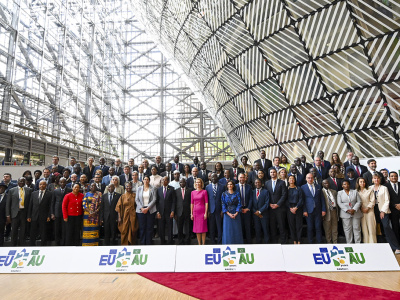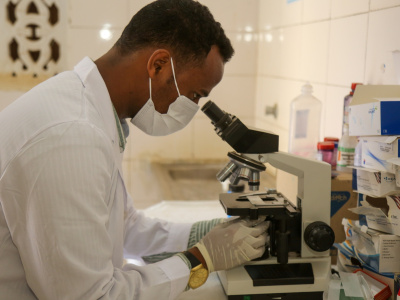
Putting People and Planet First – Business as Usual is Not an Option Post-2015
While the MDGs contributed to considerable progress in human development, a number of important development concerns were left out or inadequately addressed. Now is the moment to grapple courageously and differently with the considerable global challenges we are facing.
The Millennium Development Goals (MDGs) have played a significant role in the huge progress that has been made in areas such as getting children into school, child mortality has been significantly reduced and millions more people have access to safe drinking water. However, the world is a very different place to when the MDGs were designed at the turn of the century. Not only has the geo-political balance of power shifted, but a number of global challenges, such as climate change and environmental limits have taken on an importance we can no longer ignore. Other challenges, such as inequality, have taken deeper root, while the systems, models and paradigms by which we live our lives have been shown to function in the interests of only a few and to be unsustainable and even destructive in the longer term. If the post-2015 framework is to address these, it will therefore also need to be very different. Different in the processes by which it is drawn up and agreed and different in its design, content and implementation. Business as usual is certainly not an option.
It is now time to move beyond the traditional development cooperation agenda and identify and address comprehensively the root causes of the key challenges that the world is facing today: challenges as varied - and as linked - as food security, climate change, resource constraints, population dynamics and an unsustainable growth, production and consumption model. We must take this opportunity to challenge a number of the prevailing wisdoms and have the courage to question the current paradigms. For example, why are we so bound to GDP as a measure of growth and progress in a country? Is GDP an effective measure of development, or of sustainable development, if it ignores the human and natural capital of a country, does not reflect living standards, or well-being, and actually contributes to our consumerist culture?
European civil society is urging world leaders to come together to design a single, integrated and comprehensive post-2015 framework which addresses all three dimensions of sustainability: social, economic and environmental. Decision-makers must put aside competing agendas and jockeying for power in order to meet the needs of the people and the planet going forward.
The starting point for the post-2015 framework must be that all people should see the progressive realisation of their rights, be able to fulfil their potential and live free from poverty. And all that should be accomplished in full respect of environmental limits. Poverty and inequality are not accidents of fate. They are the results of specific power relations and policy decisions which are discriminatory, exclusionary and unjust, and which create obstacles to people participating fully in the economy and in society in general. These barriers are rooted in political, legal, social, and economic structures starting at the household level and extending up to the international level. The framework must therefore focus on transformational processes and structural changes to address the root causes of inequality and unsustainability.
Henceforth, it will not only be the achievement of a number of objectives that counts, but also the road we travel to get there. In order to overcome barriers to participation and empowerment, and to focus on the most marginalised or disadvantaged, the quality of the processes and the way all goals are pursued will be equally important and will in part determine the quality and scale of the outcomes.
As for the geographic scope of the future framework, given the nature and scale of the global challenges the world is facing, it is no longer possible to imagine a framework that is designed predominantly for implementation by developing countries. Rich countries can no longer dictate to poorer ones what needs to change. Rather, all countries - and all actors - will need to commit to work in partnership. The post-2015 framework must therefore be universal, with global goals pertaining to all countries and all countries needing to contribute to their achievement. But since one size does not fit all, while the framework must be global in scope, it will also need to be suitably flexible so as to apply to different national or regional contexts and to reflect differing historical contributions to the current situation.
A huge opportunity stands before us and hopes are pinned high on the post-2015 framework. We must work together in the common aim of creating an ambitious framework which transforms ‘business as usual’ and puts people, their rights and their well-being front and centre.
Tanya Cox is Senior Policy and Advocacy Adviser at Save the Children EU Office and Co-Chair of the CONCORD-Beyond 2015 European Task Force.
This article was published in Great Insights Volume 2, Issue 3 (April 2013)



